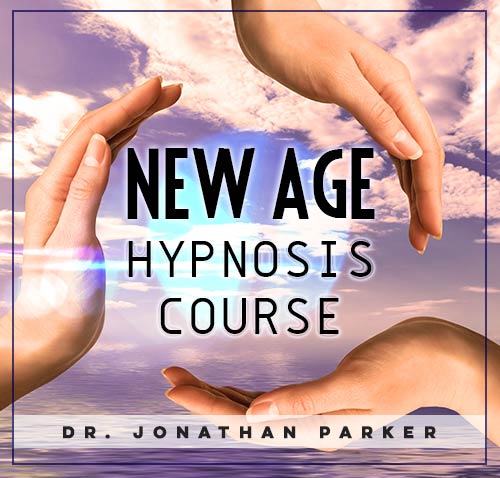Hypnosis for Anxiety Relief

Hey there, amazing readers! 🖐️ Just a quick note: yes, we know there are a lot of ads here. Trust us, we get it—it’s not the prettiest look, but they help us keep this blog alive and kicking. Those pesky little ads cover the costs of all the behind-the-scenes magic, from hosting and tech stuff to creating content we hope you’ll love.
We’re committed to delivering quality posts, and your support (even just sticking around despite the ads) means everything to us. So, bear with us, and thanks for helping us keep the good vibes rolling. Now, on to the fun stuff! 😉
TRANSLATE BUTTON AT THE END OF THE ARTICLE
A Quick Overview
Anxiety is a common mental health condition that affects millions of people worldwide.
It can manifest in various forms, such as generalized anxiety disorder, social anxiety, panic disorder, and phobias, among others.
While some individuals manage their anxiety with therapy, medication, or self-help techniques, others may seek alternative methods like hypnosis for relief.
In recent years, hypnosis has gained popularity as a complementary treatment for anxiety.
This article will delve into the world of hypnosis for anxiety relief, exploring its benefits, how it works, what to expect during a session, techniques used, finding a qualified hypnotherapist, safety, success stories, long-term management, combining hypnosis with other treatments, research and studies, and frequently asked questions.
Understanding Anxiety
Anxiety is a normal response to stress or danger, but when it becomes excessive or persistent, it can interfere with daily life.
Symptoms of anxiety may include excessive worry, restlessness, irritability, muscle tension, difficulty concentrating, and sleep disturbances.
Chronic anxiety can impact relationships, work performance, and overall well-being.
It’s essential to address anxiety and seek appropriate treatment to alleviate symptoms and improve quality of life.
The Benefits of Hypnosis
Hypnosis is a therapeutic technique that involves inducing a relaxed state of focused attention to facilitate positive changes in thoughts, feelings, and behaviors.
When used for anxiety relief, hypnosis can help individuals access their subconscious mind to identify and address underlying issues contributing to their anxiety.
By promoting relaxation and reducing stress, hypnosis can help alleviate symptoms of anxiety and improve overall mental well-being.
Additionally, hypnosis can empower individuals to develop coping strategies and build resilience against future anxiety triggers.
How Does Hypnosis Work?
During a hypnosis session, a trained hypnotherapist guides the individual into a state of deep relaxation through verbal cues and visualization techniques.
In this heightened state of focused attention, the individual is more receptive to positive suggestions and imagery that can help reframe negative thought patterns and beliefs.
By accessing the subconscious mind, hypnosis can bypass conscious resistance and work on a deeper level to address underlying issues contributing to anxiety.
The individual remains in control throughout the session and can choose to accept or reject suggestions.
What to Expect During a Session
Before a hypnosis session for anxiety relief, the hypnotherapist will conduct a thorough assessment to understand the individual’s specific symptoms, triggers, and goals.
During the session, the individual will be guided into a relaxed state, either sitting or lying down, while the hypnotherapist uses calming language and imagery to induce a trance-like state.
The individual may experience heightened focus, deep relaxation, and a sense of detachment from their surroundings.
Throughout the session, the hypnotherapist will provide positive suggestions tailored to address the individual’s anxiety symptoms and promote a sense of well-being.
Hypnosis Techniques for Anxiety
Hypnotherapists use a variety of techniques to address anxiety during hypnosis sessions.
Some common techniques include:
Guided imagery: Using vivid mental images to evoke relaxation and positive emotions.
Progressive muscle relaxation: Systematically tensing and relaxing muscle groups to release physical tension.
Positive affirmations: Repeating empowering statements to instill confidence and reduce negative self-talk.
Regression therapy: Exploring past experiences or memories to identify and resolve underlying issues contributing to anxiety.
Anchoring: Associating a specific cue or action with a state of calmness or relaxation to trigger that state in times of anxiety.
Finding a Qualified Hypnotherapist
When seeking hypnosis for anxiety relief, it is essential to find a qualified and reputable hypnotherapist.
Here are some tips for finding a qualified hypnotherapist:
Check credentials: Ensure the hypnotherapist is certified by a reputable hypnotherapy organization.
Ask for referrals: Seek recommendations from trusted sources, such as healthcare providers or friends who have undergone hypnosis.
Inquire about experience: Find out how long the hypnotherapist has been practicing and their experience with treating anxiety.
Discuss treatment approach: Make sure the hypnotherapist’s treatment approach aligns with your goals and preferences.
Trust your instincts: Choose a hypnotherapist with whom you feel comfortable and confident in their abilities to help you manage your anxiety.
Safety and Effectiveness
Hypnosis is generally considered safe when conducted by a trained and qualified professional.
The effectiveness of hypnosis for anxiety relief can vary depending on individual factors, such as the severity of anxiety, willingness to engage in the process, and consistency of sessions.
While hypnosis can be a valuable tool for managing anxiety, it is not a substitute for medical or psychological treatment.
Individuals with underlying mental health conditions should consult with a healthcare provider before pursuing hypnosis as a treatment option.
Success Stories
Many individuals have reported positive outcomes from using hypnosis for anxiety relief.
Success stories often highlight the following benefits of hypnosis:
Reduced anxiety symptoms: Individuals experience decreased levels of worry, fear, and panic.
Improved coping skills: Individuals develop effective strategies for managing anxiety triggers.
Increased relaxation: Individuals feel more calm, centered, and in control of their emotions.
Enhanced well-being: Individuals report an overall improvement in mental health and quality of life.
Managing Anxiety Long-Term
While hypnosis can provide immediate relief from anxiety symptoms, long-term management of anxiety may require ongoing therapy, lifestyle changes, and self-care practices.
To maintain the benefits of hypnosis for anxiety relief, individuals can:
Practice relaxation techniques: Incorporate deep breathing, meditation, or yoga into daily routines.
Engage in regular exercise: Physical activity can help reduce stress and improve mood.
Maintain a healthy diet: Eat nutritious foods that support mental health and well-being.
Seek support: Build a strong support system of friends, family, or support groups.
Monitor progress: Keep track of anxiety symptoms and coping strategies to identify patterns and progress over time.
Combining Hypnosis with Other Treatments
In some cases, combining hypnosis with other treatments for anxiety can enhance effectiveness and provide comprehensive support.
Individuals may benefit from integrating hypnosis with:
Cognitive-behavioral therapy (CBT): Combining hypnosis with CBT can address negative thought patterns and behaviors associated with anxiety.
Medication: Hypnosis can complement medication by promoting relaxation and reducing reliance on pharmaceutical interventions.
Mindfulness practices: Incorporating mindfulness meditation or relaxation techniques can enhance the benefits of hypnosis for anxiety relief.
Lifestyle modifications: Making changes to sleep habits, diet, exercise, and stress management can support overall mental health and well-being.
Research and Studies
Research on the effectiveness of hypnosis for anxiety relief is ongoing, with several studies supporting its potential benefits.
A systematic review published in the American Journal of Clinical Hypnosis found that hypnosis significantly reduced anxiety symptoms in various clinical populations.
Another study in the International Journal of Clinical and Experimental Hypnosis demonstrated that hypnosis combined with CBT was more effective in treating anxiety disorders than CBT alone.
While more research is needed to fully understand the mechanisms of hypnosis for anxiety relief, current evidence suggests that it can be a valuable adjunctive therapy for individuals experiencing anxiety.
Frequently Asked Questions
Is hypnosis safe for treating anxiety?
- Hypnosis is generally safe when conducted by a trained professional.
It is essential to work with a qualified hypnotherapist who adheres to ethical guidelines and practices.
- Hypnosis is generally safe when conducted by a trained professional.
How many hypnosis sessions are needed for anxiety relief?
- The number of sessions needed can vary depending on individual needs and goals.
Some individuals may experience relief after a few sessions, while others may benefit from ongoing therapy.
- The number of sessions needed can vary depending on individual needs and goals.
Can hypnosis cure anxiety?
- Hypnosis is not a cure for anxiety but can be a valuable tool for managing symptoms and promoting relaxation.
It is often used in conjunction with other treatments for comprehensive care.
- Hypnosis is not a cure for anxiety but can be a valuable tool for managing symptoms and promoting relaxation.
What should I look for in a hypnotherapist?
- When choosing a hypnotherapist, look for credentials, experience, treatment approach, and compatibility.
Trust your instincts and choose a professional you feel comfortable working with.
- When choosing a hypnotherapist, look for credentials, experience, treatment approach, and compatibility.
How long do the effects of hypnosis for anxiety relief last?
- The effects of hypnosis can vary from person to person.
Some individuals may experience long-lasting benefits, while others may require periodic sessions to maintain results.
Consistency and self-care practices can help sustain the effects of hypnosis.
- The effects of hypnosis can vary from person to person.
Conclusion
In conclusion, hypnosis can be a valuable and effective treatment option for individuals seeking relief from anxiety.
By accessing the subconscious mind and promoting relaxation, hypnosis can help individuals identify and address underlying issues contributing to their anxiety symptoms.
While hypnosis is not a cure for anxiety, it can complement traditional therapies and provide individuals with valuable coping strategies and tools for managing their anxiety long-term.
Finding a qualified hypnotherapist and being proactive in self-care practices can enhance the benefits of hypnosis for anxiety relief.
Ultimately, individuals should explore hypnosis as part of a comprehensive approach to managing anxiety and improving overall mental well-being.

The Enlightenment Journey is a remarkable collection of writings authored by a distinguished group of experts in the fields of spirituality, new age, and esoteric knowledge.
This anthology features a diverse assembly of well-experienced authors who bring their profound insights and credible perspectives to the forefront.
Each contributor possesses a wealth of knowledge and wisdom, making them authorities in their respective domains.
Together, they offer readers a transformative journey into the realms of spiritual growth, self-discovery, and esoteric enlightenment.
The Enlightenment Journey is a testament to the collective expertise of these luminaries, providing readers with a rich tapestry of ideas and information to illuminate their spiritual path.
Our Diverse Expertise 🌟
While our primary focus is on spirituality and esotericism, we are equally passionate about exploring a wide range of other topics and niches 🌍📚. Our experienced team is dedicated to delivering high-quality, informative content across various subjects ✨.
To ensure we provide the most accurate and valuable insights, we collaborate with trusted experts in their respective domains 🧑🏫👩🏫. This allows us to offer well-rounded perspectives and knowledge to our readers.
Our blog originally focused on spirituality and metaphysics, but we’ve since expanded to cover a wide range of niches. Don’t worry—we continue to publish a lot of articles on spirituality! Frequently visit our blog to explore our diverse content and stay tuned for more insightful reads.







